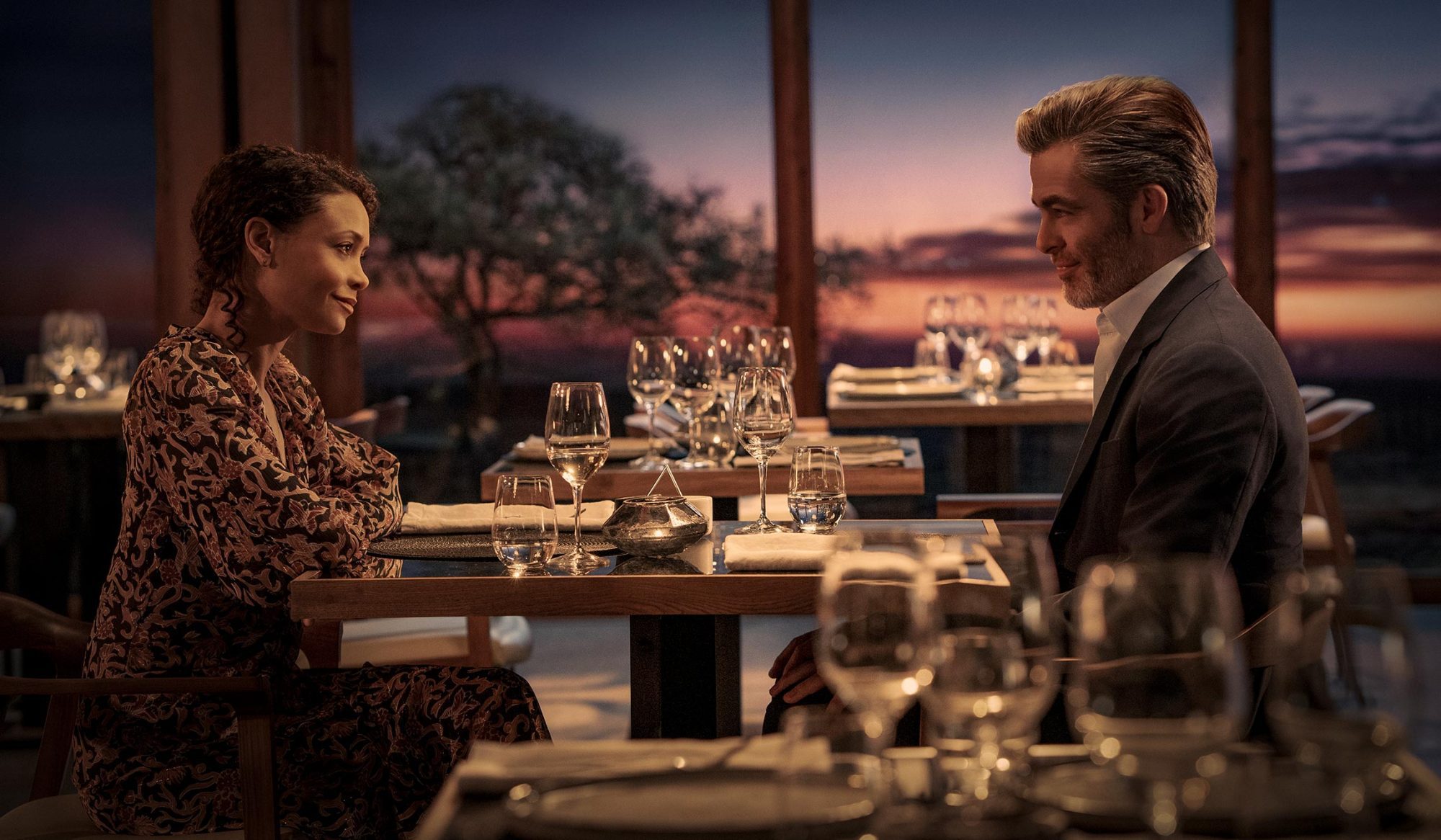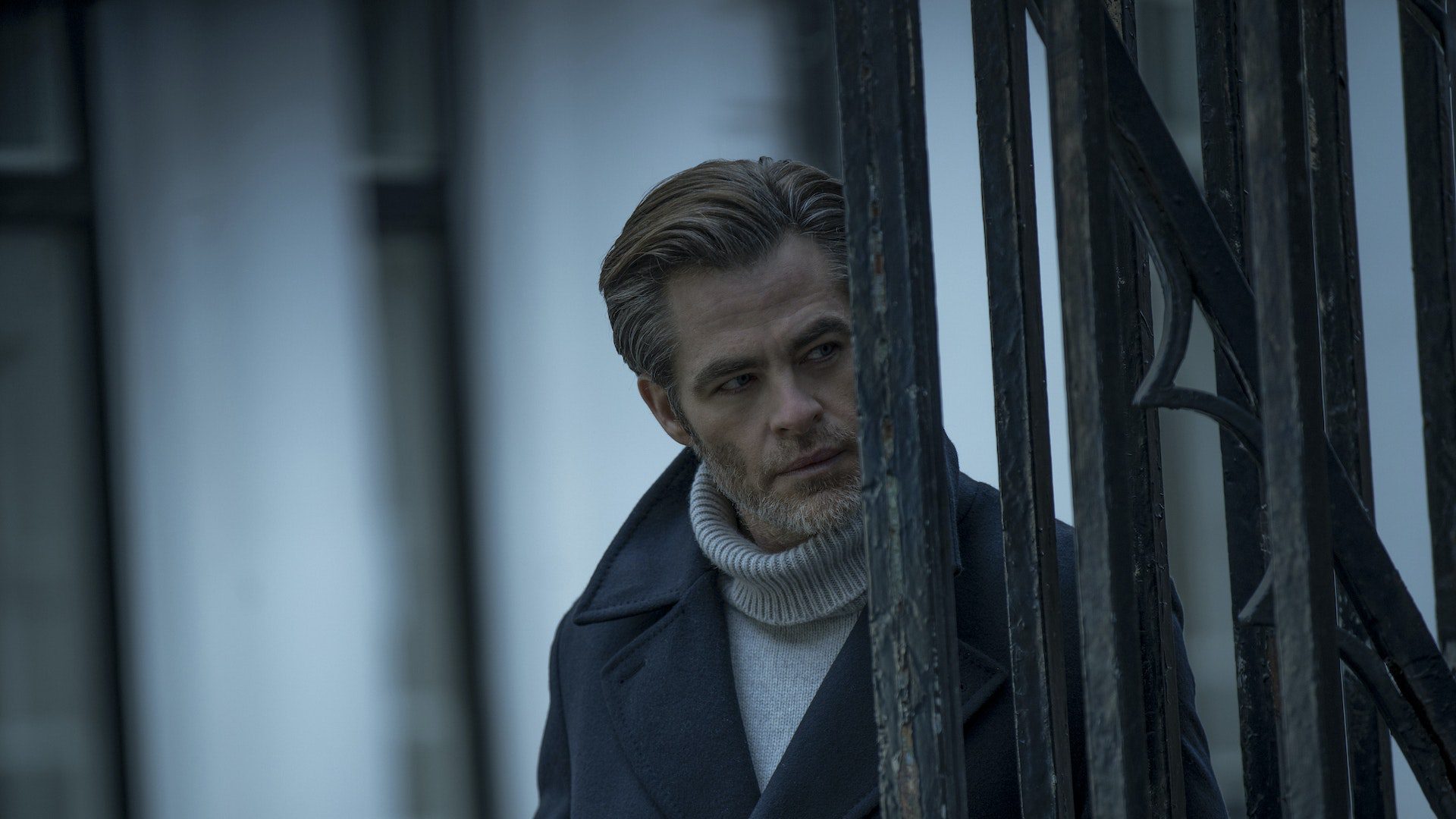REVIEW: All the Old Knives (2022)
All the Old Knives, the new spy thriller from Amazon Studios, flew a bit under the radar, as many of these streaming productions seem to do. I was only made aware of it thanks to Spybrary, my favorite podcast (outside of the fine programs in the Geeks + Gamers network, of course). This kind of movie is right up my alley, and while I’ve not known about it for long, it quickly became my most anticipated film in at least the near future. And it’s good. It isn’t quite great, and I can’t help feeling like there’s something missing, but All the Old Knives is a sturdy, breezily-paced espionage tale with good performances and a twisting plot that centers on a romance that, if not dead, is on life support.
Six years after a catastrophic terrorist attack in Austria, CIA operative Henry Pelham (Chris Pine) is sent to probe a new lead from the tragedy’s recently captured and interrogated mastermind: a traitor in the Agency’s Vienna station was helping the terrorists. Henry’s investigation reunites him with Celia Harrison (Thandiwe Newton), his former lover – and the most likely suspect.
What stands out most immediately about All the Old Knives is its structure. The plot is told in large part via numerous flashbacks, and these occur in a nonlinear fashion, so at times, it can be a bit difficult to keep the timeline straight. You get used to it eventually, and by the end, the necessity of this storytelling method becomes clear, but it’s jarring at first. Once you’ve picked up on the film’s rhythm, though, the jumping back and forth through time creates momentum that works to the movie’s advantage, making what could have been a slow, treacly story feel energized.
That energy is key because All the Old Knives is essentially about two people reminiscing over dinner. Everything centers on the meeting between Henry and Celia, two lovers who never thought they’d see each other again, suddenly thrown together by a fate that demands closure to their aborted relationship. These scenes – or, really, this scene, but split up among the many flashbacks –are played just right and are eminently relatable. Forgetting that they’re spies, the crux of their dinner is the tension of reuniting with someone you once loved: the pumping blood at seeing them again, the worry that you may say the wrong thing, the slight flirting you probably shouldn’t do but can’t stop yourself from engaging in because it’s her. The mix of elation at seeing each other again and sadness that what once was is now gone is evident on both of their faces, and Pine and Newton play it perfectly.

The filmmaking helps them out here. Director Janus Metz films the dinner scene very differently from the rest of All the Old Knives. There are obvious visual cues, like the sunlight shining on Celia when Henry first lays eyes on her. But then there’s the coloring; the dinner has a golden tint to it, indicating the warmth that Henry and Celia feel for each other, their comfort and tranquility in each other’s presence. By contrast, another interrogation Henry conducts in a flashback is gray, emphasizing the coldness with which Henry plies his trade, pushing someone to reveal whether or not he’s in league with the enemy. Also, pay attention to the angles and framing with which Henry is filmed in both sequences for a clue as to what’s lying beneath the surface.
It isn’t just the romance, though. Metz has a good eye for the trappings of a spy story, and he makes All the Old Knives fit comfortably in its genre. The romantic scenes are sexy, not just in what is shown but in what isn’t and when; they’re sometimes playful and teasing in the way a couple will be with each other, and sometimes frantic in the way people who need to feel loved will insist on it. The sequences taking place in the office are drab, brownish, conveying the way the spies see their station: as a workplace like any other, where they get coffee and file reports before attending meetings, anesthetized to the life-or-death subject matter until that fateful attack shocks them into the reality they normally forget. The spycraft itself is basic, but varied; mostly, it involves meeting with sources or suspects. Some of these are clandestine, taking place in dark underground parking lots or empty rooms of a cultural center during off hours. Others are more public, like the lively kitchen of a contact’s family restaurant or a British pub for an afternoon Scotch.

So, what is it that holds All the Old Knives back from being an espionage classic, or at least one to revisit fairly often? It isn’t the performances; aside from Pine and Netwon, who are really the whole show, Laurence Fishburne (who is, unfortunately, in the “playing the boss” stage of his career) and Jonathan Pryce lend personality and stature to the number one and number two guys at the Vienna Station. Pryce’s role is a bit juicier than Fishburne’s, and he keeps his character’s loyalty – or lack thereof – admirably close to the chest. And in just a couple of scenes, Orli Shuka shows the evolution of a CIA asset when the truth of how his handlers think of him becomes clear. The rest of the cast is fine, not having enough to work with to make their mark on the picture, but acquitting themselves well enough all the same.
I think the problem is in the length. All the Old Knives is based on a novel of the same name by Olen Steinhauer, who also wrote the screenplay for the movie. I haven’t read the book, so I can’t say how close an adaptation this was – although, since the author is the screenwriter, I assume it’s pretty faithful – but I feel like there’s some missing material on the screen. I’d have liked to get to know some of the lesser characters a bit more; as it stands, the identity of the mole can only be a couple of people for the reveal to be in any way satisfying (which it very much is). It would have been nice to have a deeper pool of legitimate suspects. I also wish there was more with Henry and Celia in their personal lives. Whenever we see them in the flashbacks, they’re either working or having sex, and while the abundance of the latter is much appreciated (how is this movie sexier than the more romanticized spy films of the modern era, the Bonds and Missions: Impossible?), their love would have been better demonstrated with some scenes of them simply talking about mundane things, going to the theater, even taking long walks through the snow. The fast pace is nice, but I’d have preferred sacrificing some of that for more character development; all the visual pizzazz in the world can’t make up for that.
All the Old Knives (2022)
Plot - 8
Acting - 8
Directing/Editing - 8
Music/Sound - 7
Spycraft - 7
7.6
Good
All the Old Knives is a breezy spy movie with good performances and well-executed visuals that could have used some more character development to sell the romance that is central to the story, as well as the mole hunt driving it.







